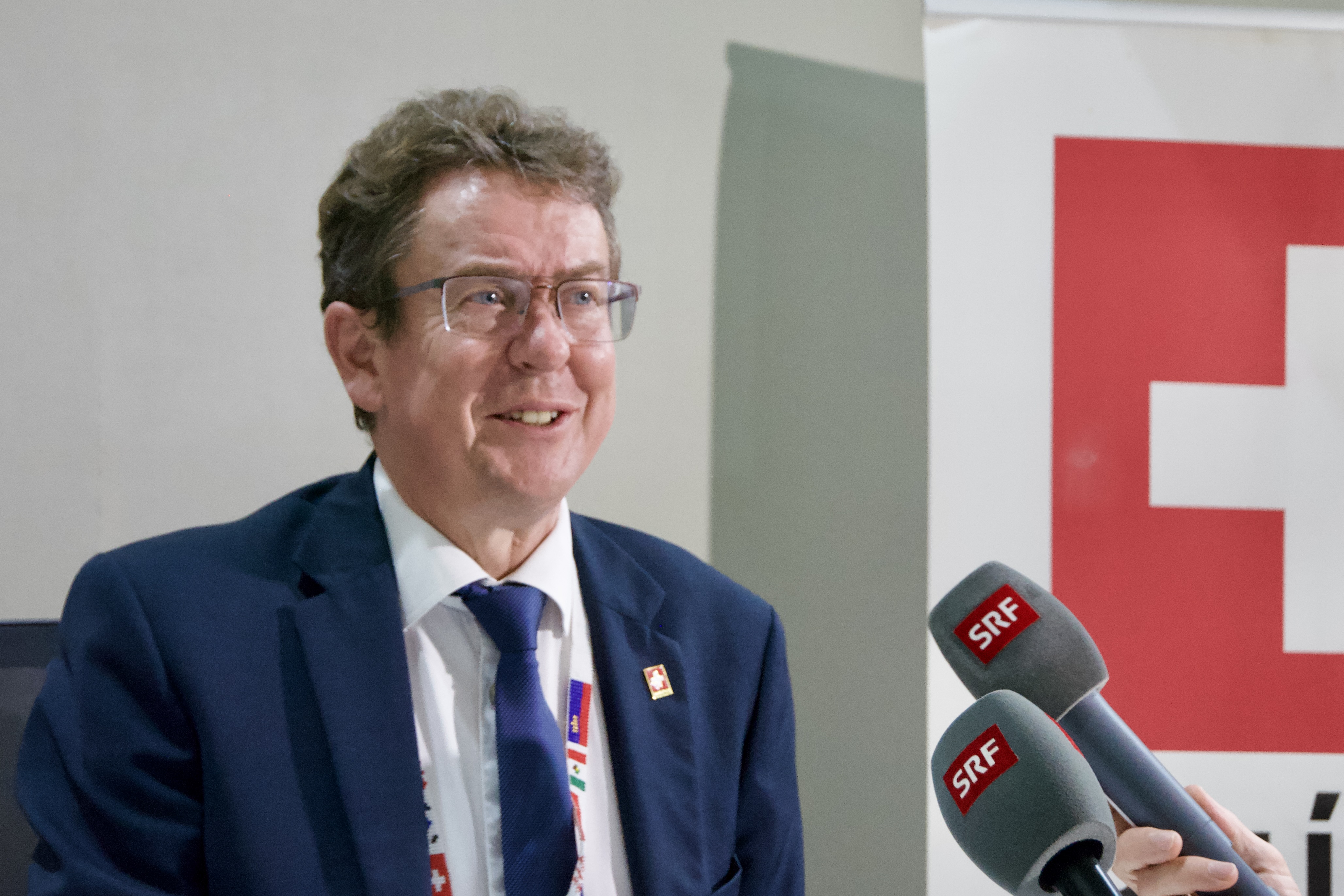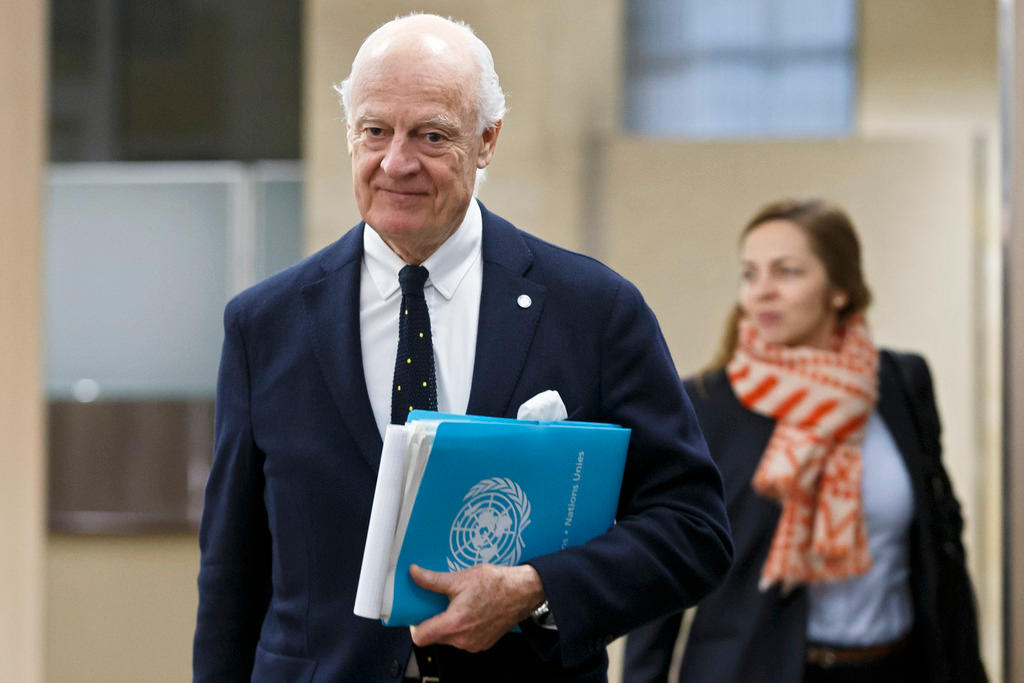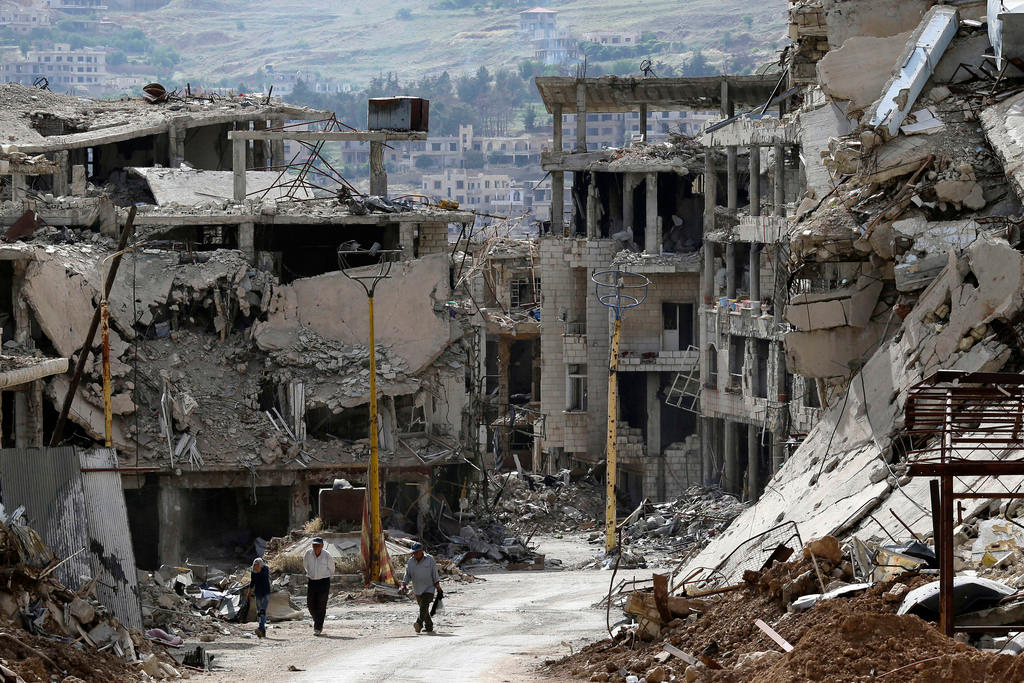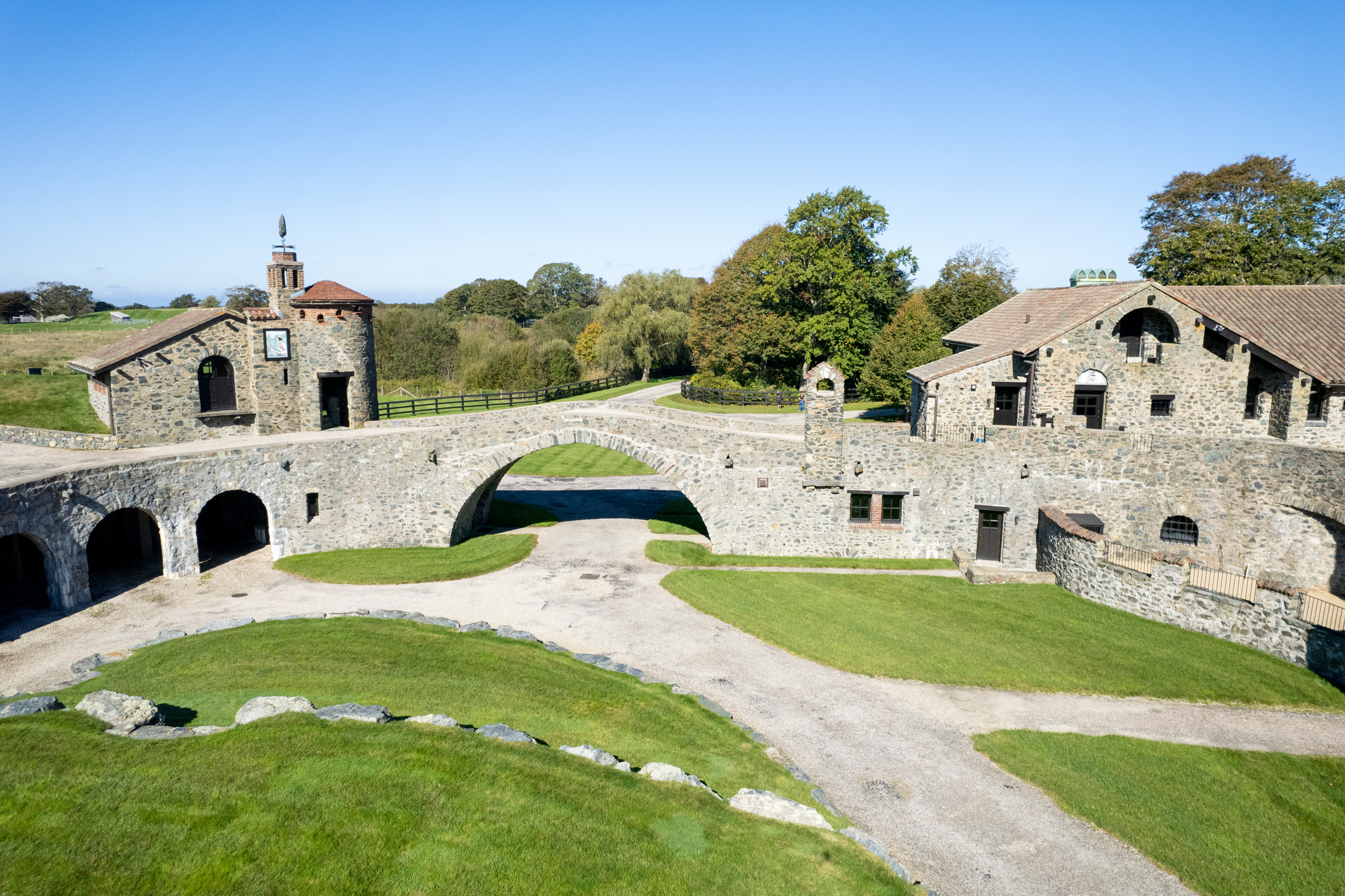
Is there hope for diplomacy in 2018?

“One year ago I said I thought this year had to get better, and I thought it would. But I was wrong. In many respects 2017 got even worse.”
These were the words of Jan Egeland, the chair of the UN’s humanitarian taskforce for SyriaExternal link, just before Christmas. Emerging from a taskforce meeting he said he has asked key UN member states (the US, Russia, China, Egypt, Turkey, the UK and half a dozen more) to do more.
“I think…they should be able to have influence commensurate with their military and economic investment in Syria and at times I wonder really why isn’t there more influence?”
It’s a very good question, and one many are asking. What has happened to traditional diplomacy? How has the brutal conflict in Syria been allowed to drag on for seven long years?
Vacuum where influence should be
A key issue may not be a genuine lack of influence, but a lack of interest in using it. The United States, once the world’s chief proponent of ‘soft power’, is mostly diplomatically absent when it comes to Syria, or to other conflicts such as Yemen.
Instead, it is focusing on issues such as Jerusalem, and warning UN member states that ‘the president takes this personally’, and that any country defying his wishes may face sanctions.
Meanwhile ‘peace’ talks on Syria and Yemen come and go, and no real progress is made.
Russia has seized the initiative in Syria, supported by Turkey and Iran, but many question whether this is true diplomacy, or rather a more basic enforced de-escalation of the conflict, designed primarily to protect their own economic and strategic interests.
Talking to the devil
So who will make the diplomatic running in 2018, if indeed anyone runs at all? In Geneva, there is some new thinking quietly taking place. The city is of course home to the world’s major humanitarian organizations, from the International Committee of the Red CrossExternal link, to Medecins Sans FrontieresExternal link, to the many UN aid agencies.
And who talks to warring parties more often, and more directly, than the senior diplomats? Aid agencies in conflict zones: frontline negotiators, as they are known.
“We speak to everybody, people on terror lists, dictators, militias, very nasty people,” says Jan Egeland.
“I have met more war criminals than most, and I do that because I want to help people in the depths of hell, and at times they {the people I have to talk to} look very much like the devil.”

Traditionally, the humanitarians and the political negotiators have kept themselves very much apart, but now some are wondering whether those frontline negotiators might be useful in today’s very fragmented conflicts.
“The firewalling of one against the other may not be the most intelligent strategy,” suggests ICRC President Peter Maurer.
Frontline Negotiators
To explore the experience of frontline negotiators more deeply, the Geneva Centre of Competence on Humanitarian NegotiationExternal link has begun collecting the experiences of those who work on the frontline.
“These experiences have been confidential for decades,” explains Claude Bruderlein, director of the Centre. “But we need to learn from them.”
The information is being gathered by the ICRC for the Centre’s records: it will remain sealed to the public for 60 years, but it is nevertheless providing senior aid workers and diplomats with some valuable first hand accounts. “Frontline humanitarian negotiation is very pragmatic,” says Bruderlein. “What kind of arrangements do we make to evacuate the wounded, to get food in…how to engage with extremist groups.”
Very relevant then, to the situations in Syria and Yemen, but, can learning from these experiences support the diplomats trying to make peace?
As ever, nothing is simple. At a closed door debate in Geneva, Peter Maurer, Jan Egeland, High Commissioner for Refugees Filippo Grandi, UN Special envoy for Syria Staffan de Mistura, as well as the head of the World Food Programme David Beasley, the head of MSF Switzerland Liesbeth Albrecht, and the UN Under Secretary General for Humanitarian Affairs Mark Lowcock all met to discuss how political mediators (the diplomats) could work more closely with frontline humanitarian staff.
Politicized humanitarian agenda
Peter Maurer of the ICRC acknowledges that political mediators and humanitarian negotiators traditionally work in very distinct circles, nevertheless he feels that in today’s conflicts diplomacy and humanitarianism have become much more interdependent, and not always in a good way.
Pointing out that a key factor in almost every round of Geneva peace talks on Syria was a demand for unimpeded aid to besieged areas, and access to detainees, Maurer worries that humanitarian basics are becoming politicized.
“In Syria,” he explains, “I think the openly expressed demand by political actors for access into besieged areas has raised the price to go into those areas for humanitarian actors.”
So diplomats should shut up about humanitarian issues and let the aid workers get on with it? Isn’t that precisely the traditional ‘firewalling’ the current discussions are supposed to tackle? Not exactly.
“My point is not that this shouldn’t happen, my point is that we have seen a coupe of years of unconsidered uses of humanitarian demands by political mediators, and I think this has twisted the role of …frontline humanitarian negotiators, and delegitimized their work.”
What Maurer seems to want is more dialogue between frontline negotiators and states’ diplomats, so that the former can help shape the latter’s message. The constant public demands by diplomats for access for aid may be counterproductive, he feels, while a quiet focus on practical aid delivery might first and foremost save lives, but also, slowly, lay some foundations for a more productive dialogue towards political reconciliation.
Prolonging the conflict
Some aid workers also believe the very public demand for access to one or other besieged area encourages bartering by the warring parties. In Syria some armed groups have demanded prisoner exchanges in return for allowing food and medicine in.
The principles of humanitarian relief of course are that it is impartial, neutral, and hopefully unconditional, but as seasoned aid workers like Peter Maurer will tell you, “humanitarian action is full of dilemmas. Our principles are there to guide us, not to prevent us making compromises”.
This again is where aid agencies are facing difficult choices. If there is no sign of a peace deal, if hundreds of thousands of civilians are suffering, and the warring parties know the aid agencies will continue delivering food and treating the wounded, are the aid workers prolonging the conflict?
In Yemen for example, where the blockade of ports has been only partially lifted, the ICRC is buying fuel at war profiteer prices, to supply the generators in hospitals and water pumping stations.
For Claude Bruderlein, this is a problem that can be traced directly back to the diplomatic impasse.
“The failure of diplomacy requires the prolongation of aid, and aid allows the continuation of a status quo.”
So what movements towards genuine peace are we likely to see in 2018? With no traditional diplomatic solutions in sight, prolongation of aid may be the best that can be achieved. But perhaps the new communication between frontline negotiators and diplomats may shed some light on who to talk to, how to talk to them, and how to build a more durable peace.
One thing is sure, if anyone of us is around in 60 years, when those confidential accounts from the frontline negotiators, the ‘conversations with the devil’ as Jan Egeland calls them, are released, they will make very interesting reading.

In compliance with the JTI standards
More: SWI swissinfo.ch certified by the Journalism Trust Initiative




























You can find an overview of ongoing debates with our journalists here . Please join us!
If you want to start a conversation about a topic raised in this article or want to report factual errors, email us at english@swissinfo.ch.